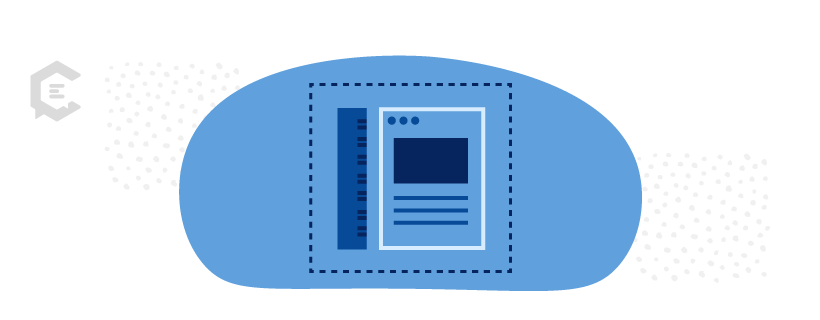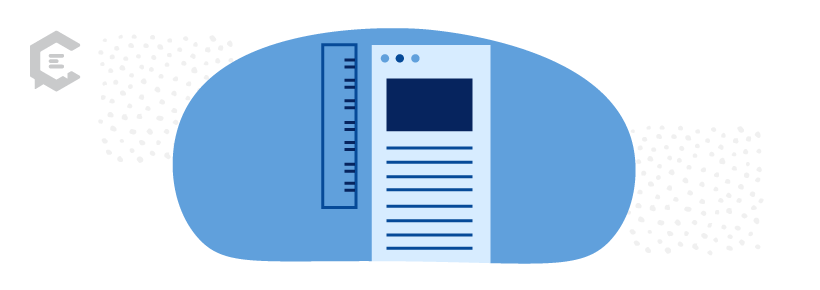Writing a blog post can be a fun practice. It can also be tough if you don’t fully understand how to reach your desired outcomes. If you know your audience and are passionate about the topics you are discussing on your blog, writing a blog can be enjoyable, valuable, and even cathartic. However, even if you are an excellent writer with loads of passion, this isn’t enough. Your ability to reach audiences is enhanced when you understand the SEO strategies and tactics that make your blogging efforts more effective.
One of the most important pieces of SEO knowledge you can understand relates to ideal blog post length. There is no magical solution for the best blog post length — but there are some guidelines for optimal blog post length that can help your blog be more successful with your target audiences. You should be the expert on what resonates with your audience. It is up to you to know how they like to receive content. Despite the need to speak to your audiences in ways that are helpful for them, if you know the answers to the following questions, your ability to appease audiences and Google should yield better organic search results for your blog posts.

What is the best length for a blog post?
Answering the question about what is the perfect length for a blog post is kind of like answering the question of how big a box is. The answer: as big as it needs to be. Of course, the nuance involved in drafting an effective blog post requires some additional attention, but you want to be careful to not overcomplicate your writing. The blogs that are read most and the blogs that are read for the longest periods of time are the blogs that provide the most value to their readers.
Before you assign an arbitrary length to a blog post, consider what the job to be done is. After you have first considered this, you can then determine how you will accomplish it. Make sure you never jump into the tactics of how to create a blog before you are first clear on the strategy of why you are creating a blog. Just remember that quality is always going to be more important than quantity.
But still, we know you are looking for a precise number. Answers vary, depending on a variety of factors, but the high-level answer for how long should a blog post be in 2022 is roughly between 1,760 and 2,400 words. For the sake of having a nice, even number to work with in this article, we’re going to estimate the ideal word count for blog posts is 2,000 words.
Will people read 2000-word blog posts?
In short, yes — if you develop content that people are interested in and package it in a way that is intriguing to read. For example, if you have a blog about knitting and an audience of avid knitters, a 2000-word blog about new knitting projects is easily consumable; if the content is interesting. Having niche interests and niche audiences is important for blogs to be successful. If you try to create content for everybody, it won’t reach anybody.
Additionally, as a blog writer, you can increase the likelihood of your audience consuming your blog content by adding any of the following visual elements:
- Subheads.
- Bulleted lists.
- Numbered lists.
- White space.
- Combination of short and long sentences.
- Combination of short and long paragraphs.
The key when developing a longer blog post is to give your text some variety so that reading your 2000-word article doesn’t seem like a daunting task for your readers. Rather than making reading your blog feel like an uphill climb, these elements can help your readers feel like they are strolling along the beach when they read your blog.
How long is too long for a blog post?
In a nutshell, your blog post is too long when it reaches a length in which one of the following happens: (1) it no longer is saying anything valuable; or (2) people leave it. Essentially, if people are still reading your blog post, then it isn’t too long. Hook Agency asked marketers in a recent poll the following question: “What is the ideal length for a blog post on your website?”
You may be surprised to know that more than two-thirds of respondents feel that blog posts that are 700 words or fewer are the optimal blog post length. As we have already learned, we would recommend blog posts that are much longer than 700 words. However, perhaps the most interesting stat from this report is that nearly 10% of respondents said they believe the ideal blog post length should be 5000 words or more. As far as we can tell, there is no such thing as “too long” for a blog post if the blog post is providing value to the reader. If it is just long for the sake of being long, then it is missing the mark.
How short is too short for a blog post?
Though there really isn’t such a thing as a blog post that is “too long” the same can’t be said of shorter blog posts. In fact, many experts recommend that blog posts never be shorter than 300 words. The answer why is simple: Google better understands what your text is about if your blog includes at least 300 words. Articles shorter than that may not have the context clues Google needs to allow the article to rank. Short blog posts might be great for short attention spans — but not for search engines.
How does blog length affect keyword usage?
Using keywords in your blog posts is important — but only if you do so in a way that doesn’t harm the quality of the article. In the early days of SEO when algorithms weren’t as sophisticated as they now are, bloggers could cheat the system by stuffing keywords throughout an article. It didn’t take long for search engines to recognize the issues created by this.
Updates in recent years have emphasized the quality of the blogs and how much time readers spend on the blogs rather than rewarding you for including a mishmash of keywords. Having said that, you can — and should — still pepper keywords throughout your articles. This is particularly true in titles and subheads. If the writing stays natural, you can easily include a couple of dozen keywords in a 2000-word article.
How often should I publish a long blog post?
Now that you know that the average blog post length is most effective between 1,760 and 2,400 words, you must ask yourself how often you should produce these kinds of blog posts. You might need to produce blogs more often than you think. Experts recommend that those who want to get some traction with their blogs should plan to publish two to four times per week. This means that you should be publishing roughly between 4,000 and 8,000 words per week.
If this is a huge increase from what you are currently publishing on your blog and if you fear you don’t have the time or capacity to spend this much time writing blogs, you may consider hiring a freelaner to create the blog content for you. If you do, you will want to make sure the freelancer you hire has the skills to write about your blog’s niche content in a way that resonates with your intended audience.
Next steps for writing your blog
Keep the principles listed above in mind as you seek to increase traffic to your blog. If nothing else, remember that your ability to reach audiences depends most on the quality of your content. If you are committed to quality content, plan to arrange for most of your blog post size to be around 2000 words. Be consistent with your blog post word count and you will see results.






